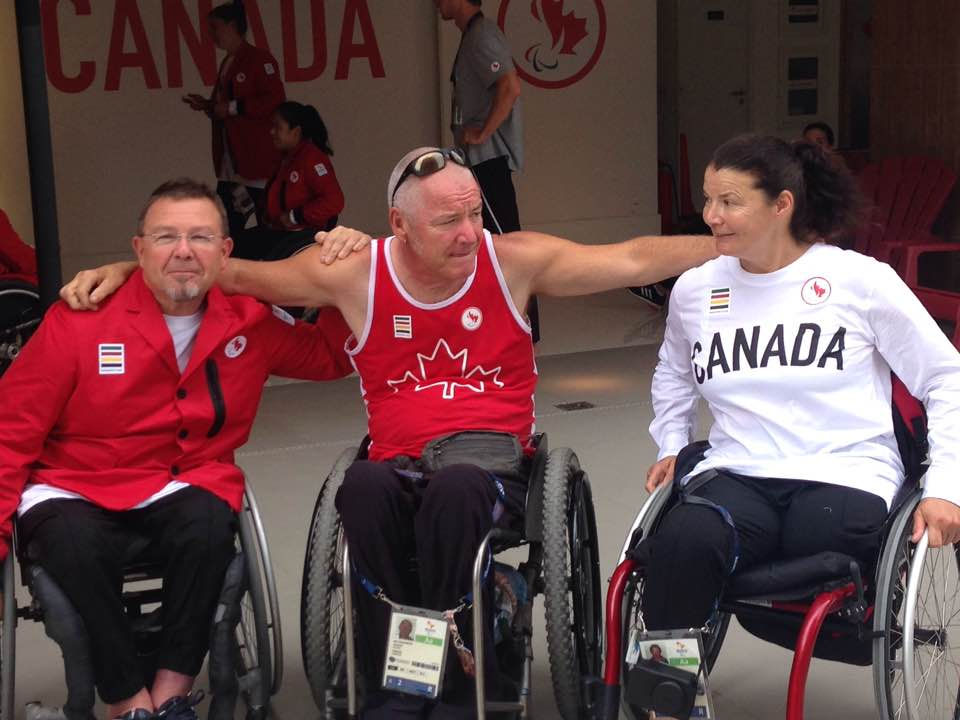Sportsmanship rules are fair, but firm
- Dec 5, 2016
- 4 min read
Sailing is at its best when its participants show a Corinthian spirit
We are often told by sporting culture to “win by any means necessary,” but using tactics that come close to cheating or certain forms of gamesmanship, creates an uneven playing field. Victory is only considered legitimate if it’s accomplished
Para and able-bodied sailing, more than many other sports, stress the importance of sportsmanship. Sailors are expected to show a Corinthian spirit, which means acting with high morals and living up to the standards of fair competition. It is one of a few sports in which able-bodied athletes compete along side Para-athletes, with no difference in rules. Sportsmanship in sailing is universal, no matter the competitor.
Sailing is a self-regulated sport; sailors are governed by a body of rules they are expected to follow and enforce. There are no referees on the water to immediately enforce the rules; it’s up to the sailors to police themselves during competition. A fundamental principal of sportsmanship is the requirement of sailors to call infractions on themselves and complete the penalty. The culture of sportsmanship is engrained early into a sailor, so it’s not common for sailors to either not call a penalty on themselves or to not accept when one is called on them. Para-sailor Aaron Wong-Sing uses his own penalties as a learning experience. “Calling penalties on myself helps me learn from my mistakes,” says Wong-Sing. “It is useful to learn how to take penalty laps quickly and get back into the race.”
For most common violations, like touching a mark or not giving right of way, sailors are required to complete either one or two 360-degree turns (the number depends on the rules of the event). If a boat thinks they witnessed a violation, they can call for a protest, which is done by shouting the word “protest” three times. If the boat in question chooses not to admit their fault and complete the penalty turn, then after the race, the protest will go to a four-person panel to determine if the infraction occurred and what the penalty should be.

Photo courtesy of the Canadian Paralympic Committee // Matthew Murnaghan
John McRoberts, a silver medalist at the 2016 Paralympic Games says there are some sailors who make a point of not admitting their own errors to see if they can get away with it. “People will push the rules to see how far they can go,” says McRoberts. “When it comes to the protest room, people see things very differently. It is amazing what comes out of some people’s mouths when they want a ruling (in their favour).”
Skill is often a determining factor on how often a sailor refuses to take a penalty. Not only do less skilled sailors commit more infractions, they also don’t know their rulebook as well as experienced racers do. When race official Anne Sanderson is working races at local clubs, she expects to be questioned on some calls. “On any given night, 90 per cent of them don’t know the rules,” Sanderson says. “So, I know if I do something that is according to the rulebook, I may have a few people come and challenge me, just because they don’t know the rules.”
But there are still those that try to get away with violating the rules. Para-sailor, Peter Eagar says he does not accept the rationale for people not admitting fault, because it is an expected norm of racing. “The reason for going out on the water and competing is to do so admirably, with respect for the rules and structure of the competition,” Eagar says. “If you don’t do that, I don’t think you should be out there.” The other competitors look at sailors who have a reputation for not accepting penalties differently. “It generally catches up with them,” Eagar says. “Over the years you see some people come and go. They end up not sticking around long because it is a real community.”
When it comes to penalties, sportsmanship goes both ways. It is one thing to call obvious infractions that have an impact on the outcome of a race, but it is another to be an indiscriminate whistleblower, protesting every little thing. McRoberts says there is a fine line between when it is legitimate to call a protest against another boat and when the rule violation had little impact on the race and should be let go. “Sometimes you instead say to the boat ‘you can buy me a beer for that!’,” McRoberts says.
Outside of self-policing, much of the rules of sportsmanship come from rule 69 in the racing rules of sailing. This rule deals with allegations of gross misconduct, which can have much more serious forms of punishment. Some examples of actions that could violate rule 69 are, bullying or intimidation, fighting, or the abuse of an official. Punishment for violating this rule can range from a boat’s disqualification from a race to a prolonged suspension from further competition.

Photo courtesy Sail Canada
Sailing is a sport built on fair competition and opportunity. It is a sport in which Para-athletes and able-bodies athletes compete along side one another. Some of the penalties may sound strict, but the rules of sportsmanship are important because they are universal and work to create a fun and supportive environment for all participants. “Everyone will lineup at the crane that lifts the boat out everyday when they are finished and it doesn’t matter what your disability is, everyone helps out,” Sanderson says. “These people are from all walks of life and all ages, it is a community and that’s all part of the sportsmanship.”
Former British Paralympic athlete, David McCrae speaks about sportsmanship within para-sport and how the athletes form a bond through their shared adversity. Video by GreatSportsmanship.org


Comments